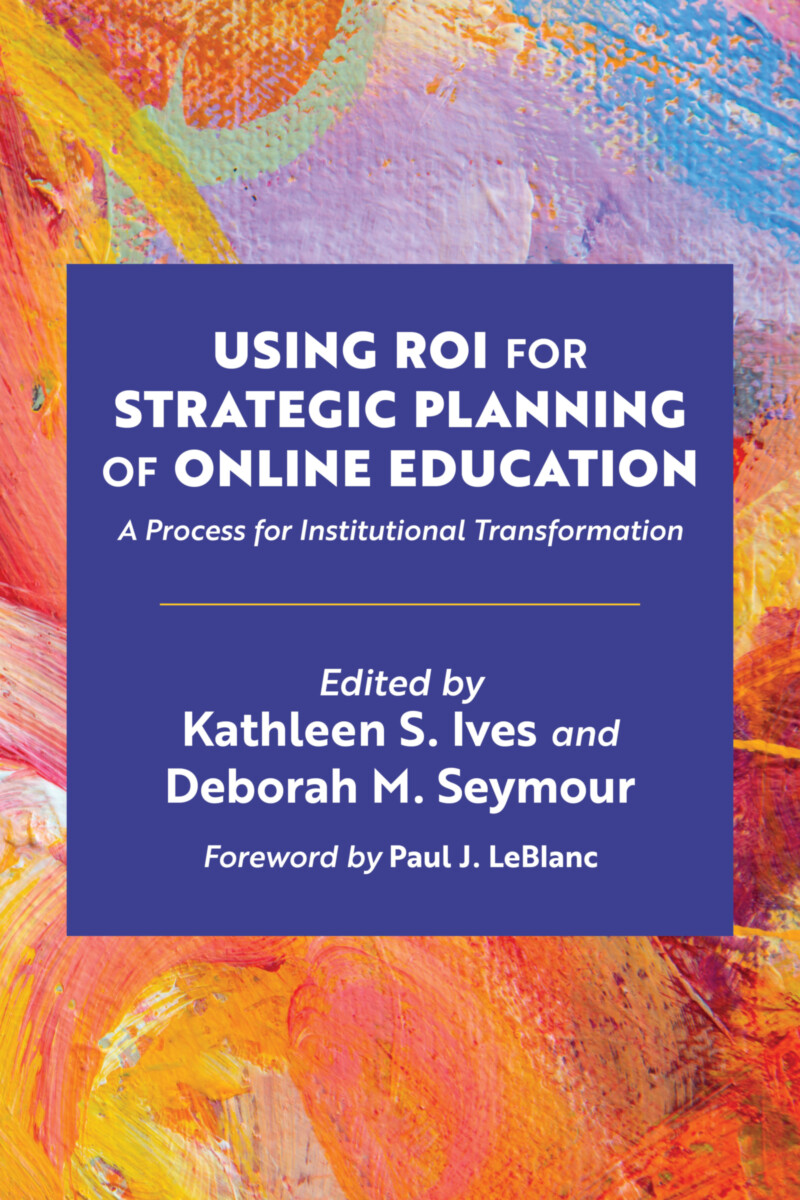New Book Turns Lens on Online Education’s ROI Imperative
Using ROI for Strategic Planning of Online Education
A Process for Institutional Transformation
Edited by Kathleen S. Ives and Deborah M. Seymour
Foreword by Paul LeBlanc
Published by Routledge in association with UPCEA
UPCEA members get a 20% discount and free shipping! Contact us at [email protected] to get your code!
While higher education has rarely employed ROI methodology—focusing more on balancing its revenue streams, such as federal, state, and local appropriations, tuition, and endowments with its costs—the rapid growth of online education and the history of how it has evolved, with its potential for institutional transformation and as a major source of revenue, as well as its need for substantial and long-term investment, makes the use of ROI an imperative. This book both demonstrates how ROI is a critical tool for strategic planning and outlines the process for determining ROI.
The book’s expert contributors lay the foundation for developing new practices to meet the compelling challenges of online education and identify new models that offer the potential for transforming the educational system, meeting new workforce demands, and ultimately improving the economy.
The book offers a range of approaches to ROI reflecting the strategic priorities and types of return institutions seek from their investment in online programming, whether they be increased profits or surpluses via reduced expenses or increased operating efficiencies or the development of increased brand awareness for their programs.
It also addresses the growing competitive environment of recent commercial entrants and online program managers (OPMs). The contributors offer best practices for setting goals and identifying benchmarks for increasing and measuring payback, including the creation of cross-functional ROI teams from across an institution; and further address the advantages and disadvantages of universities partnering with external providers, or even other colleges and universities, to provide online programs with them and for them.
This book offers presidents and senior administrators, faculty engaged in shared governance, online learning administrators, and stakeholders representing student, community and employer interests with a rigorous process for developing an online strategy. Learn more.
WEBINAR SERIES
Hear directly from the authors in this recorded webinar series that explored three specific areas of focus: Strategy and Tactics, Constituents and Players, and Special Cases and Considerations.
View Webinar Recordings:
- Using ROI for Strategic Planning of Online Education: Special Cases and Considerations Originally held April 6, 2023
- Using ROI for Strategic Planning of Online Education: Constituents and Players | Constituents and Players - Originally held March 2, 2023
- Using ROI for Strategic Planning of Online Education: Strategy and Tactics - Originally held February 2, 2023
PRESS RELEASE



